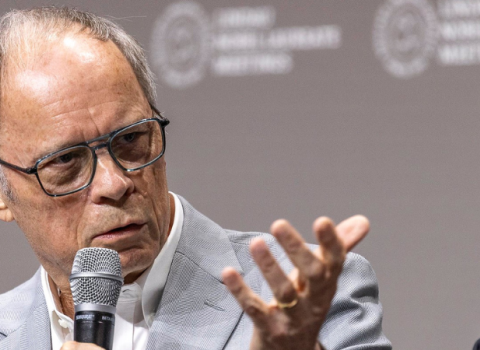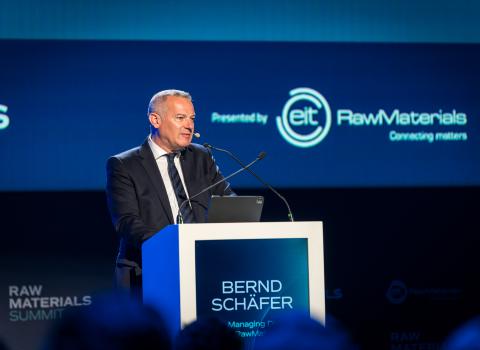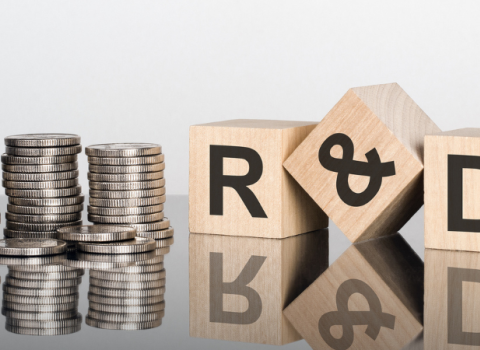A dive into the calls for proposals that the Commission has outlined so far for Horizon Europe in 2026 and 2027

Photo credits: Erik Karits / Unsplash
The European Commission is not due to publish the Horizon Europe work programmes for 2026 and 2027 until the end of this year, but early drafts circulating in Brussels give plenty of detail about research priorities and likely calls for proposals. Here is what we know so far.
Cluster 1: health
Addressing the consequences of climate change on human health gains ground in the last two years of Horizon Europe, with more calls for proposals looking at ways to support health adaptation and build climate-resilient healthcare systems.
The Commission also emphasises the development of digital health solutions and technologies, including artificial intelligence, for topics ranging from predictive biomarkers of disease progression to biomedical research and regulatory testing, all the while tasking researchers to examine the harmful impacts of their use on the mental health of children and young adults.
Compared with 2025, the 2026-27 draft work programme for Cluster 1 offers more opportunities for scientists to identify areas for improving equal access to high-quality healthcare, such as public procurement of innovative solutions.
Cluster 2: culture, creativity and inclusive society
Once again, Cluster 2 targets the growing number of threats to European democracies, from technological progress to mis- and dis-information. But as the geopolitical landscape changes, with autocratic movements rising across the world, the Commission wants researchers to focus on additional topics, such as gender-based violence against women and LGBTIQ people active in politics and the risks stemming from the use of digital technologies for election integrity.
This also means looking into media independence and sustainability in the face of increasing social media popularity and severe economic pressure, to ensure that the democratic debate is well informed.
On the culture and creativity side, AI is given a more important role as part of the EU’s efforts to stimulate disruptive innovation and, ultimately, its competitiveness. Social and economic transformation remains one the main focuses of the work programme, with a few additional calls dedicated to child poverty and learning skills.
Cluster 3: civil security for society
Calls for proposals related to organised crime, terrorist attacks, drug trafficking and cybersecurity breaches are at the heart of Cluster 3. For the final two years, the Commission enhances the need to develop new and emerging technologies for reinforcing civil security, and monitoring their use for criminal purposes.
Researchers are asked to advance capabilities for issuing, verifying and managing possible future types of digital travel credentials for people travelling outside the EU. At the same time, the Commission wants them to help prevent and counter the misuse of quantum, cloud computing or new biometrics, and dive into issues related to data access.
In line with EU efforts to stimulate its productivity based on innovation, the work programme for 2026-27 offers funding for creating cutting-edge tools, equipment and technologies designed for disaster and emergency response.
There is a similar push to improve civil preparedness and crisis management through the development of support systems.
Cluster 4: digital, industry and space
As in 2025, emphasis is given to the circularity of production materials and chemicals. Researchers must also support the Clean Industrial Deal and the decarbonisation of energy-intensive industries. To do so, they are required to look into the development of innovative technologies and tools to explore, extract and process critical raw materials.
Echoing many other clusters, the use of AI in manufacturing is subject to several calls for proposals.
When it comes to space, the focus remains on strengthening Europe’s assets and giving it a competitive edge in global markets. However, calls with the EU’s Earth observation service, Copernicus, no longer appear, either for monitoring carbon emissions or estimating the impact of fires on vegetation.
We lack a draft work programme on the digital calls for this cluster.
Cluster 5: climate, energy and mobility
Researchers will be asked to work towards increased understanding of the interactions between climate, human and natural systems and of climate-related risks and extremes in order to strengthen citizens’ preparedness.
In line with the EU’s digital and green transition, proposals should address the need to reduce Europe’s reliance on third countries for raw materials, and help build next-generation batteries, increase flexibility and resilience in energy systems, and lower energy consumption in the real-estate and transportation sectors.
The official version of the programme is expected to include a pilot call in support of the Clean Industrial Deal.
Cluster 6: food, bioeconomy, natural resources, agriculture and environment
Cluster 6 will continue to fund researchers seeking to improve global knowledge of what drives biodiversity loss on land and within deep sea ecosystems. The draft plans include, for example, a call dedicated to helping businesses integrate biodiversity considerations in decision-making, particularly SMEs and start-ups.
Work on environmentally friendly food production systems will look at increasing the resilience of crops against emerging plant pests, invasive alien species, ecosystem degradation and globalisation and climate-related hazards, among other emerging and future risks to plant health.
The need to better assess risks to nature preservation also gains prominence, with calls designed to strengthen tools to estimate risks linked to contaminants such as per- and polyfluoroalkyl substances and microplastics.
Finally, the EU’s new competitiveness agenda is apparent in topics on the use of artificial intelligence and other innovative solutions to boost the agricultural and forestry sectors, and the rural economy.
Widening participation and strengthening the European Research Area
The Widening programme seeks to reduce the research and innovation performance gap between richer and poorer EU member states and is currently under review by the Commission. Leaked plans for the remaining years of Horizon Europe flesh out new initiatives, such as a Teaming Synergies call to develop thematic clusters and common strategies among Teaming Centres of Excellence, and a pilot for a research management and administrative support facility.
We think it is important to maintain a public record of how Horizon Europe evolves in successive rounds of drafting between the Commission and member states. This is a political process that, so far, the Commission refuses to make transparent. To this end, Science|Business is making a full history of the drafting process publicly available in our Horizon Papers database. You can share other draft work programmes anonymously at [email protected].





 A unique international forum for public research organisations and companies to connect their external engagement with strategic interests around their R&D system.
A unique international forum for public research organisations and companies to connect their external engagement with strategic interests around their R&D system.